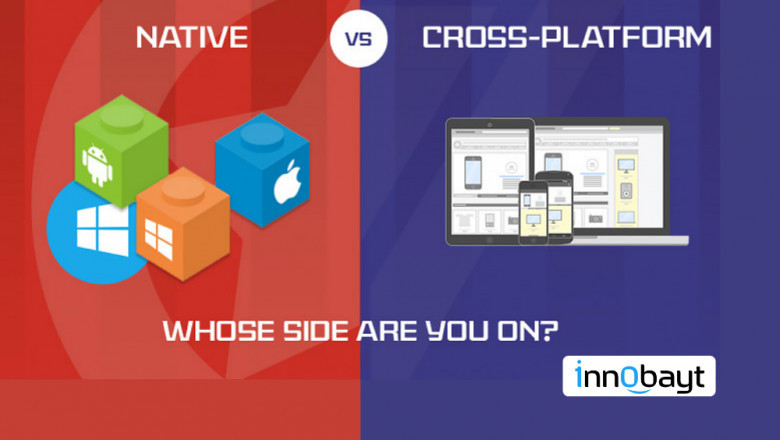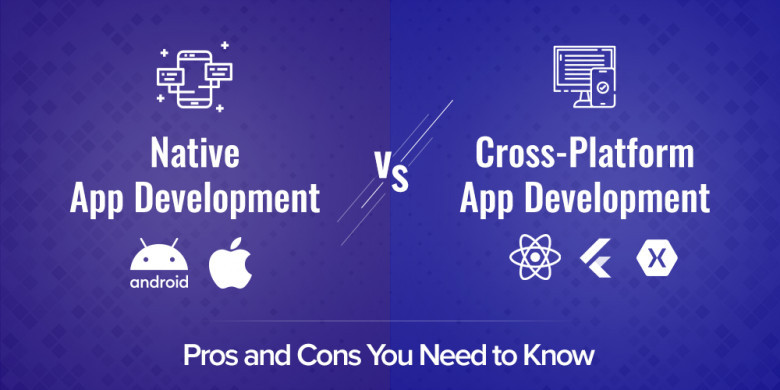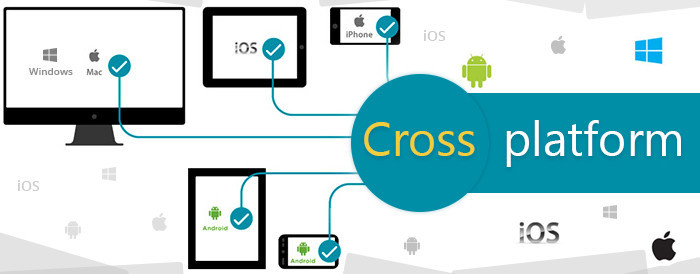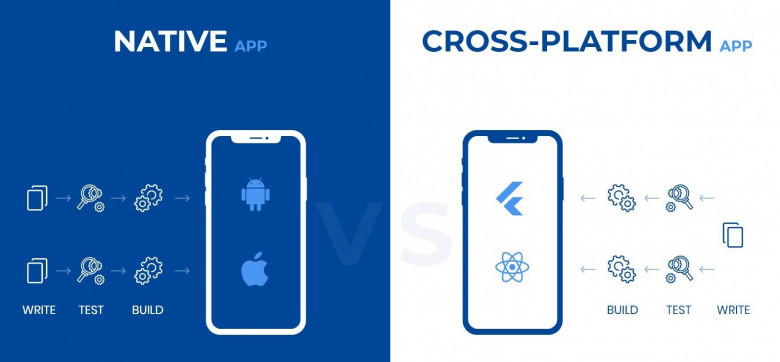views

It is undeniable to see that mobile applications have become a major part of our lives in the modern world. Due to the ever-increasing popularity of smartphone usage and mobile applications, people are now making use of mobile apps for a variety of reasons – from accessing news and other information, to shopping, gaming, and engaging on social media as well.
This results in mobile app development companies trying to experiment to discover the best way to build a mobile app that not only looks great but provides a smooth functioning experience on different smartphones/devices.
Why a debate regarding Native or Cross-Platform Apps?

With the ever-increasing competition between the Google Play Store and The Apple App Store, two of the largest mobile application stores in the world with a vast library of apps, it somehow becomes difficult to determine which platform would best suit your app.
If you plan to develop an app that only works on one of those two stores, you will need to create a completely new version of that app for the other store. On the contrary, a cross-platform solution aims to provide functionality on both of those stores with a single version of the app.
To put this into context -
· Google Play Store has over 2.8 million apps whereas Apple App Store has over 1.9 million apps.
· The average smartphone user has 5-10 applications which they use actively.
· Over 218 billion app downloads last year from Google and Apple!
These numbers show you the relevance of applications in modern times. This is the main reason why it is essential to understand what kind of app you want to build.
Let us uncover the advantages and disadvantages of the two types of mobile apps – Native and Cross-Platform, understand what they mean, and compare them by considering their specific function and requirements.
Native Apps

Native app development takes place with one particular platform in mind. This often leads to a more solid outcome in terms of results and timeframes. You can say that this is the ideal solution, but it is not accessible to every budget.
Advantages
· A native app is a much faster and more responsive solution
· Push notifications that provide a more engaging experience
· A very broad level of functionality
· More likely to rank higher on store searches
· Scalability tends to be quite high
Disadvantages
· The cost of native apps is higher due to the need to develop more than one version when looking to offer the app on more than one platform (iOS & Android).
· The process is time-consuming due to how it needs to start from scratch for each platform and equal work in terms of development, testing and project management would have to go to each platform.
Cross-Platform Apps

A cross-platform app is a more accessible option to consider. This is ideal for those who do not wish to spend a large sum of money on development. The fact that this one-project-fits-all solution is very practical, but it does come with its own drawbacks.
Advantages
· It is significantly more affordable than native app development as it is the same code that would work on various platforms.
· The development process is faster, and this translates to affordability due to shorter development timeframes.
Disadvantages
· These apps are usually slower due to a lack of optimization for any specific platform.
· Cross-platform apps have a harder time gaining access to numerous functionalities in smartphones.
· You have no accessibility to native UX components when developing cross-platform apps.
The major differences between Native and Cross-Platform Apps

· When a mobile app development company is hired to work on cross-platform, they will get the work done faster.
· Development times for native are much longer, but the results are also much better with native applications.
· You shorten development time with cross-platform, but you sacrifice stability, speed, and hardware accessibility.
· The user experience takes a hit when going for a cross-platform solution as you need to have multiple platforms in mind while developing them.
The success of your mobile application does not entirely depend on choosing one of the two platforms (native/ cross-platform). There are many success stories of companies opting for either of the two like Airbnb (cross-platform), Bloomberg App (cross-platform), and Uber (cross-platform), WhatsApp (Native), Facebook (Native), Spotify (Native) to name a few.
It is important to remember that a native app can be used on more than one platform, but the app development process is separate for each one, unlike cross-platform apps.
Cross-platform apps offer a single development process that seeks to achieve compatibility with more than one platform.
Final thoughts
At the end of the day, the decision to go for native or cross-platform requires many considerations. Hiring the best mobile app development services can make a huge difference in this process.
Keep this in mind when you look for a reliable mobile app development company. The results you get regardless of your decision relate to the experience of the development team you choose












